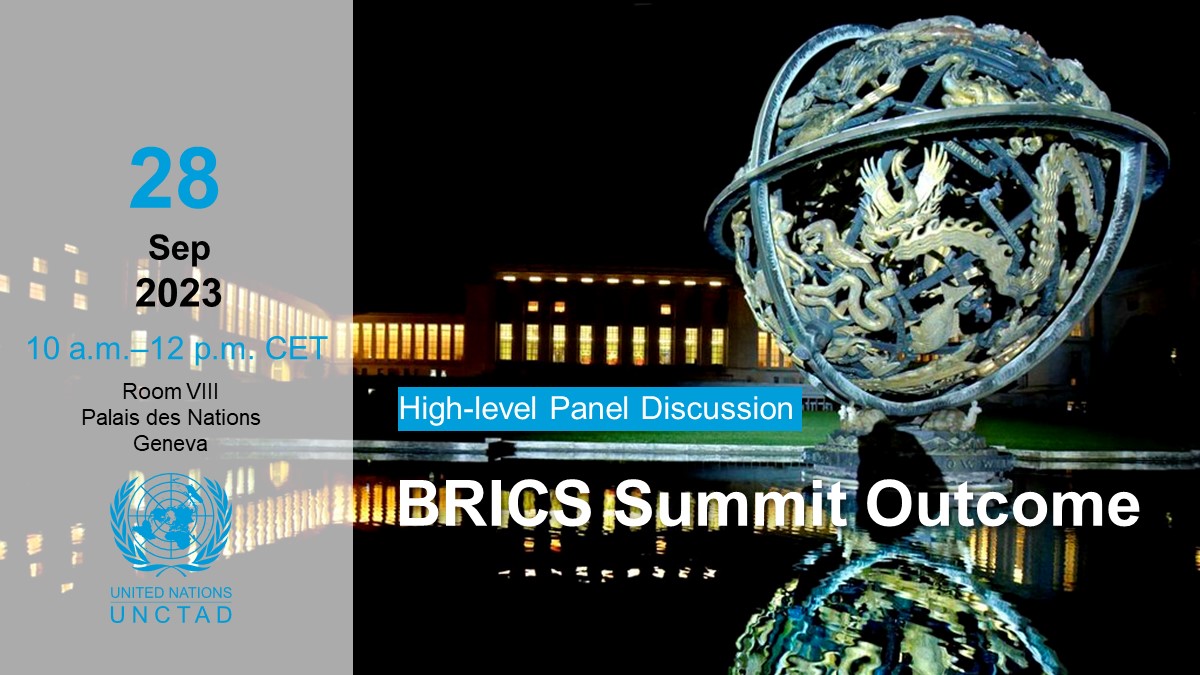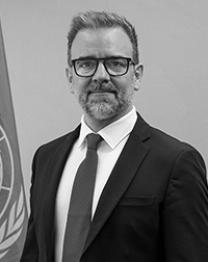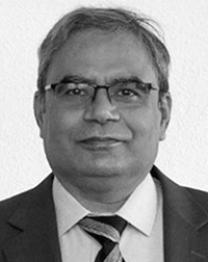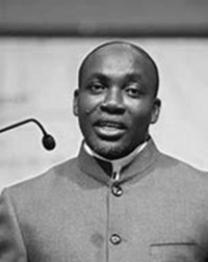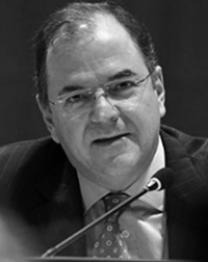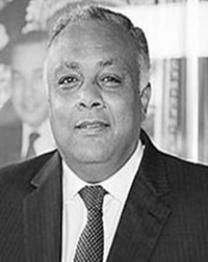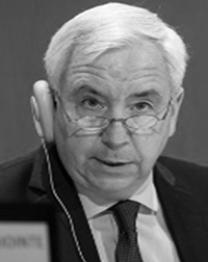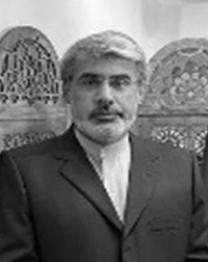The economic weight of BRICS (Brazil, Russian Federation, India, China and South Africa) has been growing steadily over the past decades. In 2022, BRICS contributed 26% and 21% of global GDP and global trade respectively. BRICS has also emerged as a strong force in the Global South with a share of 64% of its GDP. Around 40 countries have expressed their interest in joining the group. In the recent BRICS Summit, six countries (Argentina, Egypt, Iran, Ethiopia, Saudi Arabia and the United Arab Emirates) were invited to become members of the BRICS. The expanded BRICS share in Global GDP will increase to 29%. Other priorities of BRICS announced during the Summit include encouraging the use of local currencies in international trade and financial transactions between BRICS as well as their trading partners; strengthening of the New Development Bank; and addressing key challenges facing the Global South including food security, climate change, digital divide and issues related to multilateralism and the WTO’s reform.
Economic cooperation and integration amongst the expanded BRICS and with the rest of the Global South can contribute significantly in addressing the multifaceted crises facing developing countries. Collective efforts can promote inclusive and sustainable development to tackle issues such as poverty, inequality, climate change, and environmental degradation. Being a part of the Global South, BRICS could strengthen advocacy for reforms in global financial institutions, enhance financial inclusion, and explore alternative financing mechanisms to address the economic challenges facing developing countries. Facilitating knowledge exchange and capacity building initiatives with the BRICS can empower developing countries to overcome challenges and implement effective policies and strategies.
However, the Global South comprises diverse countries at different stages of development, each facing unique challenges. Bridging the developmental gap within the Global South and aligning diverse interests and priorities can be complex, making collective action difficult. Furthermore, power imbalances among the BRICS and the Global South can pose challenges in negotiations and decision-making processes. Ensuring an equitable platform for all countries to participate and have their voices heard is crucial to address the polycrisis collectively.
Against this background, it is an opportune moment to discuss the pivotal role that the BRICS can play in international fora like the UN Climate Conference (COP 28) to be held in November 2023 in Dubai, United Arab Emirates (UAE); the Thirteenth Ministerial Meeting (MC13) of the WTO to be held in February 2024 in Abu Dhabi, United Arab Emirates (UAE) and the 3rd South Summit in January 2024 in Uganda.
UNCTAD plays a central role in consensus building amongst the developing countries under its third pillar along with research and analysis and technical assistance. This high-level panel discussion will help in identifying the priorities of the developing countries and the role that BRICS can play in forwarding their development agenda.
Objective and Questions
The main objective of the High-Level Panel discussion will be to discuss the outcome of the BRICS summit and its implications for the global economy. The panel will identify the areas of mutual interest and concerns to developing countries and ways to address compounding and cascading crises.
The following questions can be discussed:
- What are the key outcomes of the BRICS Summit and how will these help in promoting inclusive global economic governance and achieving sustainable development?
- What are the priorities of BRICS and its implications for the global economy?
- How can the BRICS advance the development agenda in face of the difficult current scenario characterized by climate change, rising food insecurity and growing debts?
- What key outcomes should be delivered in the upcoming South Summit in 2024?
Programme
Moderator: Richard Kozul-Wright, Director, UNCTAD
Opening Remarks: Pedro Manuel Moreno, Deputy Secretary General, UNCTAD
Discussants:
- H.E. Mr. Mxolisi Nkosi, Ambassador Extraordinary and Plenipotentiary, Permanent Representative of the Republic of South Africa to the United Nations Office at Geneva
- H.E. Mr. Indra Mani Pandey, Ambassador Extraordinary and Plenipotentiary, Permanent Representative of India to the United Nations Office at Geneva
- H.E. Mr. Ahmed Ihab Abdelahad Gamaleldin, Ambassador, Permanent Representative of Arab Republic of Egypt to the United Nations Office at Geneva
- H.E. Mr. Federico Villegas, Ambassador Extraordinary and Plenipotentiary, Permanent Representative of Argentina to the United Nations Office at Geneva
- H.E. Guilherme de Aguiar Patriota Ambassador, Permanent Representative of Brazil to the WTO at Geneva
- H.E. Mr. Ali Bahreini, Ambassador Extraordinary and Plenipotentiary, Permanent Representative of the Islamic Republic of Iran to the United Nations Office at Geneva
Q&A
Closing Remarks: Richard Kozul-Wright, Director, UNCTAD
Participation and Registration
This session is open to all member States of UNCTAD. Other organizations, including specialized agencies, intergovernmental bodies and non-governmental organizations in the general and special categories, as well as academia and the private sector, may participate as observers.
Online registration is mandatory for all those wishing to attend the meeting and is required in order to be included in the list of participants.
Mr. Pedro Manuel Moreno of Spain, is Deputy Secretary-General of UNCTAD.
He has over 20 years of experience of working for multilateral and intergovernmental organizations in programme, management and strategic positions both in the field and at headquarters.
He was Deputy Secretary-General of the Communication for Development Committee at the Spanish National Commission with the United Nations Educational, Scientific and Cultural Organization (1999-2004), and for the United Nations Development Programme, at the Country Office in Ecuador and, in New York City, as part of the Human Development Report team, at the Regional Bureau for Latin America and the Caribbean and at the Executive Office.
In 2014, he was appointed Chief of Staff of the Ibero-American Conference in Madrid, where he coordinated key political processes and South-South cooperation projects.
In September 2021, he was named Chief of Staff and Director of the Office of the Secretary-General of UNCTAD.
Richard Kozul-Wright is the director of UNCTAD’s globalization and development strategies division.
He has worked at the UN in both New York and Geneva and published widely on economic issues, including in the Economic Journal, the Cambridge Journal of Economics, the Journal of Development Studies, and the Oxford Review of Economic Policy.
He has co-written books such as The Resistible Rise of Market Fundamentalism with Paul Rayment and co-edited volumes of Transnational Corporations and the Global Economy, Economic Insecurity and Development, Securing Peace, Climate Protection and Development and Industrial Policy.
He also co-edited Transforming Economies: Making Industrial Policy Work for Growth, Jobs and Development with the International Labour Organization.
He holds a PhD degree in economics from the University of Cambridge in the UK.
Indra Mani Pandeyis Ambassador Permanent Representative of India to the United Nations Office at Geneva and Other International Organisations in Switzerland. He joined the Indian Foreign Service in 1990. Ambassador Pandey served as Additional Secretary in Ministry of External Affairs in-charge of the Disarmament & International Security Affairs Division before joining as the Ambassador & Permanent Representative of India to the United Nations Office and Other International Organizations in Geneva in September 2020. Earlier, Ambassador Pandey had served as Ambassador of India to the Sultanate of Oman. Before Muscat, he had served as Deputy Ambassador of India to France and Consul General of India at Guangzhou (China). Ambassador Pandey has served in various capacities at Indian Missions in Cairo (Egypt), Damascus (Syria), Islamabad (Pakistan), Kabul (Afghanistan) and Permanent Mission of India to the Conference on Disarmament in Geneva (Switzerland).
During his previous stints at the Headquarters in New Delhi, Ambassador Pandey has handled assignments in West Asia North Africa Division; Consular, Passport and Visa Division; Counter Terrorism Cell; Americas Division; Bangladesh, Sri Lanka, Maldives and Myanmar (BSM) Division. During 1998-99, Ambassador Pandey attended Foreign Service Programme at Oxford University. In 2009, he attended the 49th Course on National Security and Strategy, conducted by National Defence College, New Delhi. He is married to Mrs. Sushma Pandey and they have a daughter, Devangi.
Mxolisi Nkosi is Ambassador Permanent Representative of South Africa to the United Nations Office at Geneva and Other International Organisations in Switzerland. He has served in several senior positions in the Foreign Ministry of post-Apartheid South Africa. Between February 2012 and March 2016 was the South African Ambassador to the Kingdom of Belgium, the Grand Duchy of Luxembourg and the Head of Mission to the European Union. Until his appointment as South Africa's Ambassador to the United Nations in Geneva, he was the Head of Global Governance and Continental Agenda in the South African Foreign Ministry, and President Cyril Ramaphosa's Sherpa to G7 Outreach Sessions.
An expert in the field of international relations and diplomacy, Nkosi previously headed Africa Branch in the Foreign Ministry. He has travelled extensively throughout the world and in Africa, and accompanied high-level delegations of former President Thabo Mbeki, President Jacob Zuma, former Foreign Ministers Nkosazana Dlamini-Zuma and Maite Nkoana-Mashabane, and now President Cyril Ramaphosa and Minister Naledi Pandor.
Guilherme de Aguiar Patriota as Permanent Representative of Brazil to the World Trade Organization and other economic organizations based in Geneva.
He was previously the Consul General of Brazil in Tokyo (2021-2023) and Consul General of Brazil in Mumbai (2019-2021). Mr. Patriota served as the Special Representative of Brazil to the Conference on Disarmament in Geneva (2018-2019), and before that the Deputy Permanent Representative of Brazil to the United Nations and other International Organizations in Geneva (2015-2018). A career diplomat since 1983, he has been a delegate of Brazil accredited to the Organization of American States in Washington from 1990 to 1994, the Latin American Integration Association, in Montevideo from 1994 to 1997, the Embassy of Brazil in New Zealand from 1997 to 2000, the Delegation of Brazil to the WTO and the World Intellectual Property Organization, in Geneva from 2005 to 2008, and was twice posted at the Permanent Mission of Brazil to the United Nations in New York from 2008 to 10 and from 2013 to 2015. He was International Advisor to the Brazilian Minister for Science and Technology from 2003 to 2004 and Deputy Foreign Policy Advisor to the President of the Republic from 2010 to 2013.
Ahmed Ihab Abdelahad Gamaleldin is Ambassador and Permanent Representative of Arab Republic of Egypt to the United Nations Office at Geneva. He has a long professional career in multilateral and bilateral diplomacy. He recently served as Assistant Minister of Foreign Affairs for Human Rights and International Humanitarian and Social Affairs. Previously, he was ambassador of the Arab Republic of Egypt to the Kingdom of Morocco, deputy assistant minister of foreign affairs for environment and sustainable development, director for the department for Human Rights and International Social and Humanitarian Affairs, member of the Cabinet of the Minister of Foreign affairs, the World Bank in Wahington DC, member of the Egyptian Permanent Missions to the United Nations in New York and in Geneva, and deputy permanent representative to the United Nations and Other International Organizations in Geneva.
Dr. Gamaleldin was elected as vice chair of the bureau of the international preparatory process of the World Summit on Sustainable Development and co-chaired the international negotiations on its final document. He represented Egypt in a number of international summits, conferences and meetings in the United Nations in the Economic, Social, Environmental, Humanitarian, Human Rights and International Humanitarian Law fields. He holds a PHD and MA in International Economics and International Relations from Johns Hopkins University, and an MBA and a BA in Business Administration from the American University in Cairo.
Federico Villegas is Ambassador Extraordinary and Plenipotentiary, and Permanent Representative of Argentina to the United Nations Office at Geneva since 2020. Prior to his arrival in Geneva, Mr. Villegas had been serving as Argentina's Ambassador to Mozambique until 2016. He served as the Director General of Human Rights at the Ministry of Foreign Affairs of Argentina from 2012 to 2016, and from 2005 to 2007. He was Argentina's Alternate Representative to the Southern Common Market MERCOSUR and the Association for Latin-American Integration ALADI in Montevideo, Uruguay from 2008 to 2011.
A career diplomat, Mr. Villegas joined Argentina's Foreign Service in 1993. He was Deputy Director General of Human Rights at the Ministry in 2003 and 2004, and Argentina's Alternate Representative to the Organization of American States in Washington DC from 1995 to 2003. He also served at the Directorate of International Security, Nuclear and Space Affairs at the Ministry of Foreign Affairs from 1993 to 1995.
Mr. Villegas has a Master of Arts in liberal studies from Georgetown University, Washington DC (1998). He graduated as a lawyer from the National University of Rosario in Santa Fe, Argentina (1989). He also attended an intensive programme for human rights at New College, Oxford University, United Kingdom (1999), and has a human rights diploma from the International Institute of Human Rights, Strasbourg, France (2001).
Ali Bahreini is Ambassador Extraordinary and Plenipotentiary, and Permanent Representative of the Islamic Republic of Iran to the United Nations at Geneva. Prior to his appointment, since 2016, Mr. Bahreini was, Advisor to the Deputy Minister for Political Affairs at the Iranian Ministry of Foreign Affairs.
He was also Ambassador of I.R. Iran to Ethiopia from 2012 to 2016, and simultaneously Permanent Representative of Iran to the African Union. From 2002 to 2006, Mr. Bahreini was also posted to the Iranian Embassy in Berlin. The ambassador Bahreini served as Director of the Human Rights Department at the Ministry of Foreign Affairs from 2009 to 2012, after been Deputy Director of the same Department from 2006 to 2009. His diplomat career has root at same department in which he worked from 1999 to 2002.
Mr. Bahreini holds a PhD in International Law.

